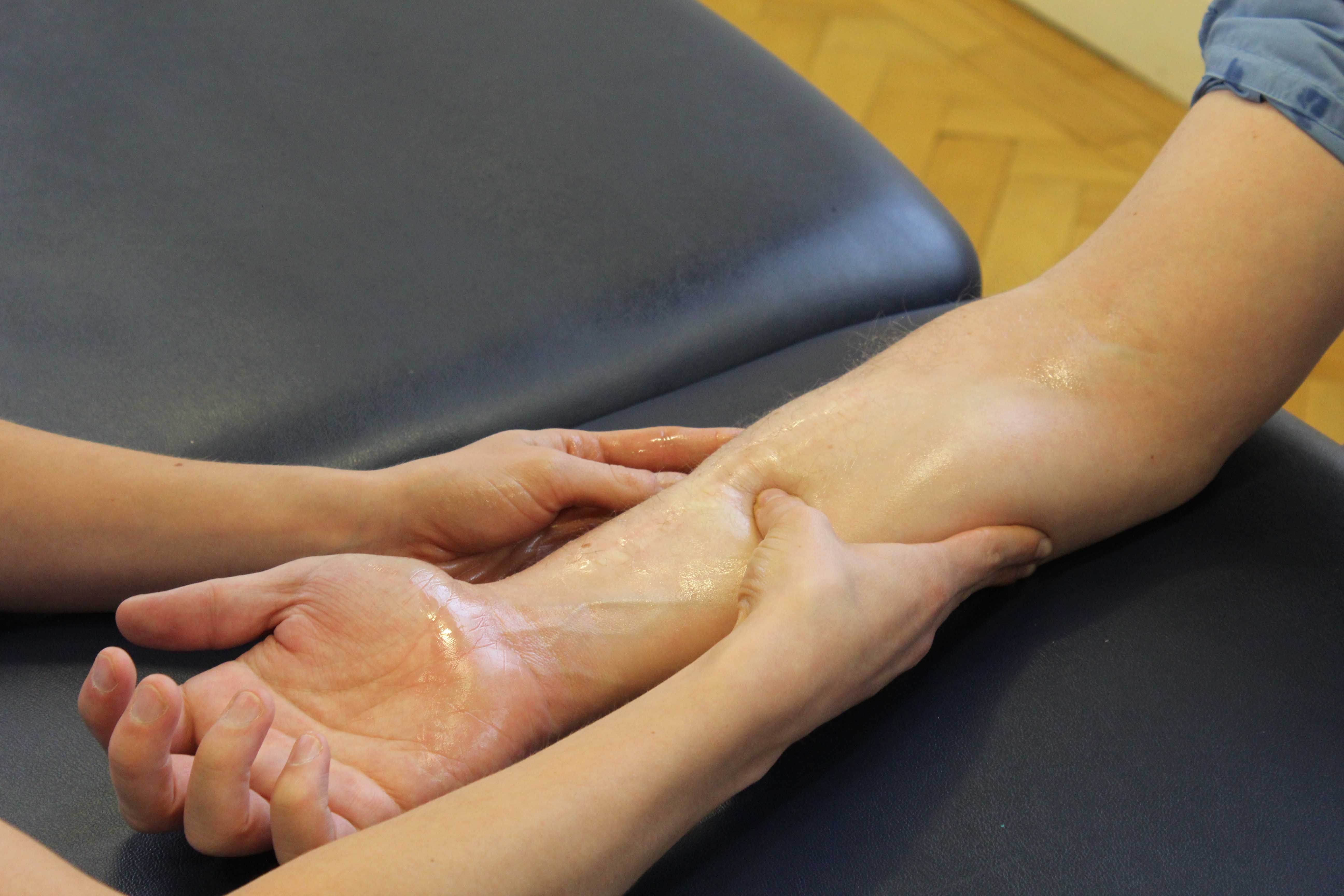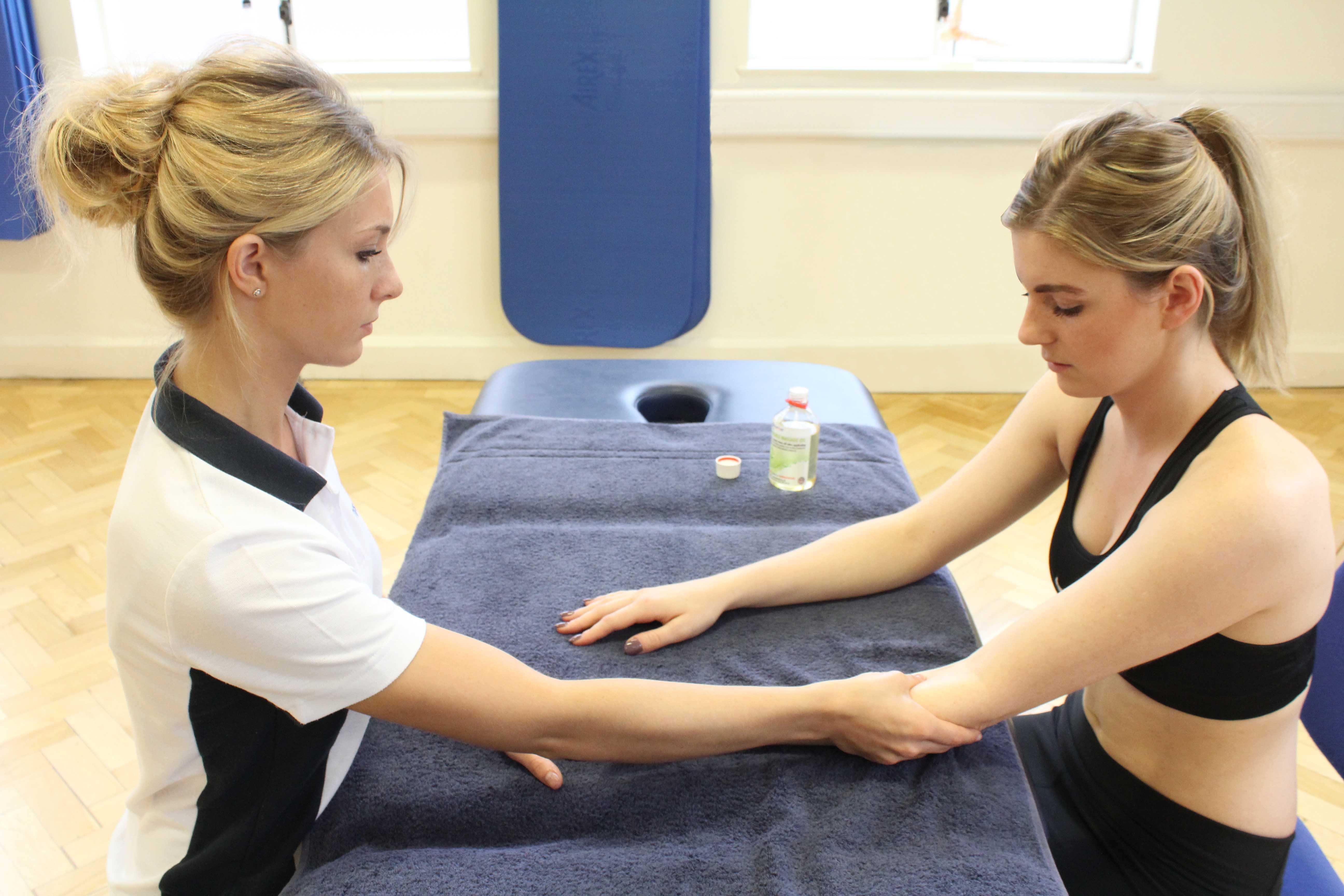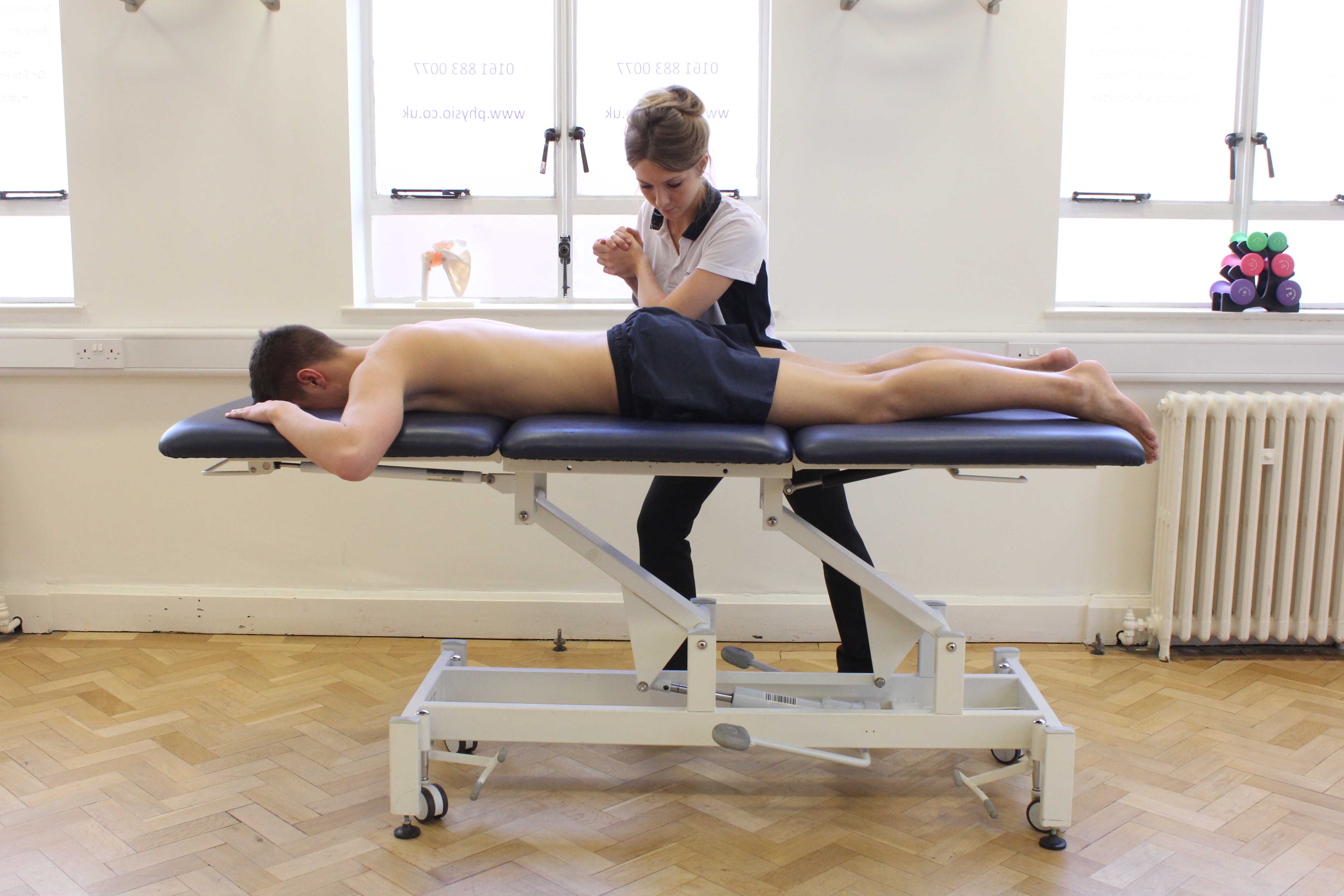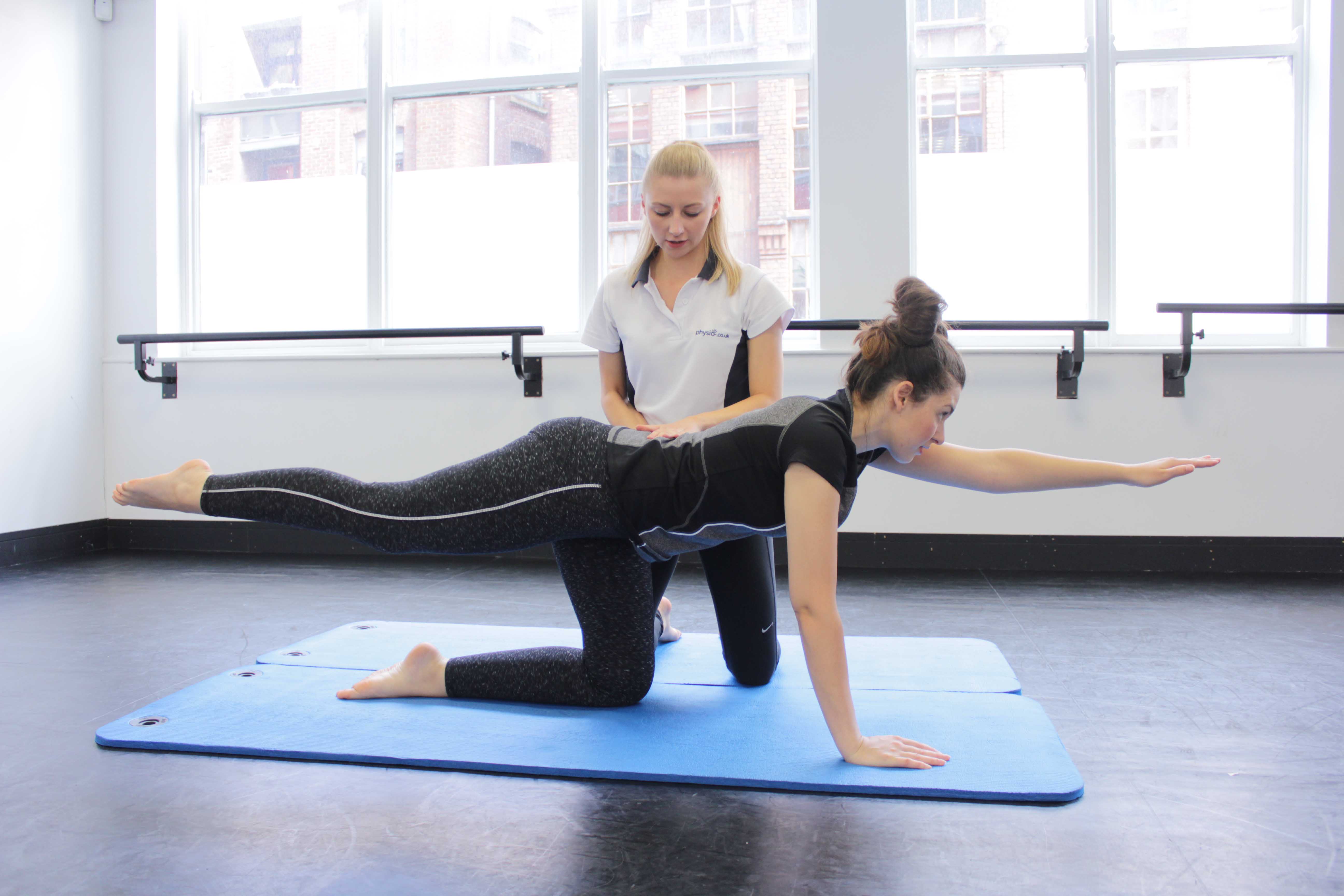What is referred pain?
Referred pain is pain experienced in a different area to the original site of injury. Pain may be referred from nerves exiting the cervical or thoracic spine and be noticed in various areas of the upper limb including the shoulder, chest, arms and hands. Physiotherapy is an excellent treatment for referred pain in the chest area.
 Above: Soft tissue massage of the pectrol muscle by experienced therapist
Above: Soft tissue massage of the pectrol muscle by experienced therapistHow does referred pain occur?
Referred pain in the upper limb can be caused by ‘trapped’ or injured nerves in the cervical or thoracic spine. This can be caused by a number due to degenerative conditions such as arthritis or trauma to the area.
What are the symptoms of referred pain?
There are various different symptoms of referred pain in the upper limbs. These may include weakness, pins and needles and numbness in the affected areas. Other symptoms include:
What should I do if I have referred pain?
It is important to obtain a professional diagnosis of your condition. Once this is confirmed, you should see a physiotherapist who will design a specialised treatment programme to meet your needs.
 Above: Soft tissue massage applied to the chest by an experienced therapist
Above: Soft tissue massage applied to the chest by an experienced therapistPhysiotherapy treatment for referred pain.
The physiotherapy that you receive will depend on the findings in your initial assessment. There are a number of treatment options available and these will be discussed with you at the start of the programme. Physiotherapy may include electrotherapy techniques such as ultrasound and laser, graduated exercise programme and soft tissue massage. Other specialised treatments include:
What shouldn’t I do if I have referred pain?
If you suspect you may have referred pain, you should avoid any activities that aggravate your symptoms. You should not ignore your symptoms as this may make things worse and prolong your recovery.
 Above: Progressive strength training for the chest muscles supervised by specialist MSK physiotherapist
Above: Progressive strength training for the chest muscles supervised by specialist MSK physiotherapistCould there be any long-term effects from referred pain?
Referred pain is usually resolved effectively with physiotherapy. If treatment is started as soon as possible, there shouldn’t be any long term complications of referred pain. However, you should continue with your physiotherapy programme even when your symptoms cease to avoid a reoccurrence of the condition.
 Above: Progressive strength training for the chest muscles supervised by specialist MSK physiotherapist
Above: Progressive strength training for the chest muscles supervised by specialist MSK physiotherapistTo arrange a physiotherapy appointment call Physio.co.uk on 0330 088 7800 or book online.

 0330 088 7800
0330 088 7800

































